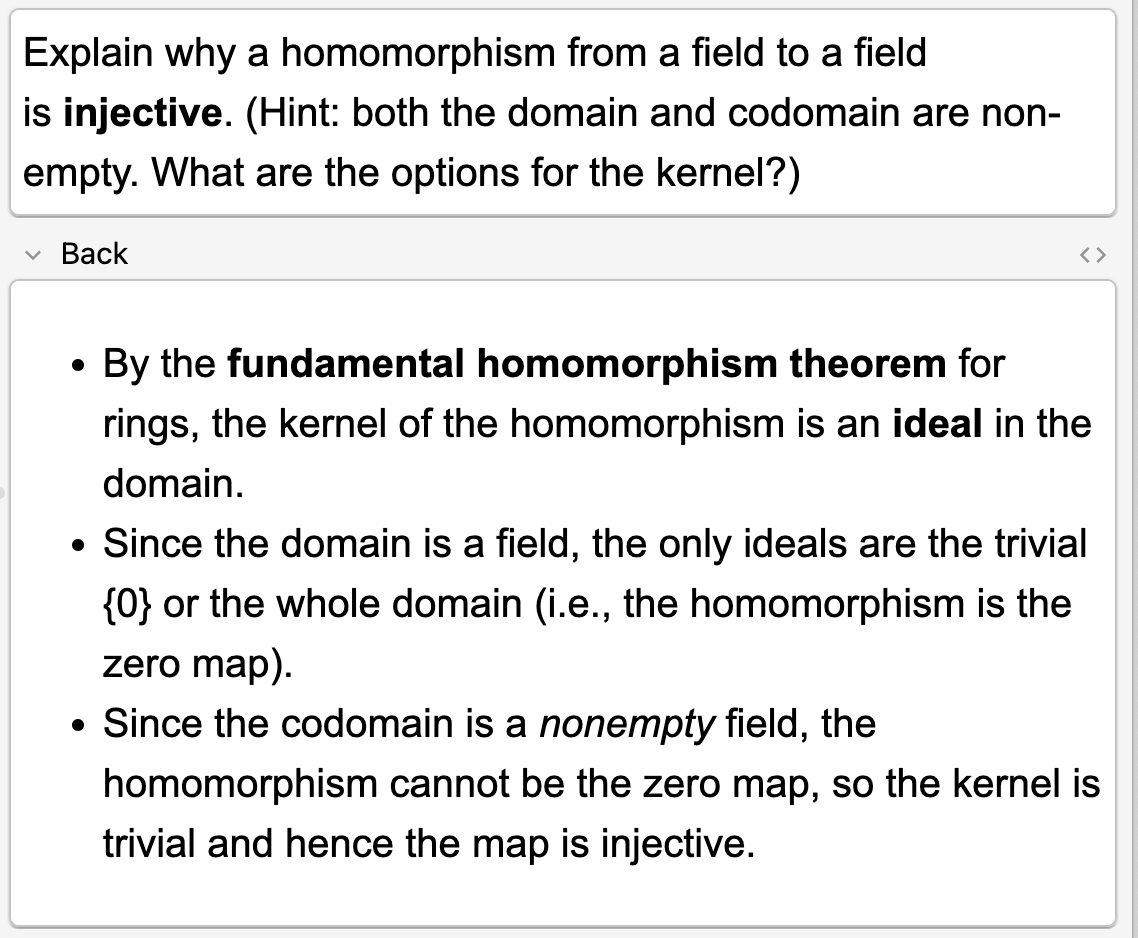Overview and definition
Division ring
A ring with unity , where every element has a multiplicative inverse, is a division ring or skew field if:
- as a group under addition is nontrivial: Equivalently, the additive and multiplicative identities are not equal;
- Every nonzero element of has a multiplicative inverse: Equivalently, the group of units is .
A field is a commutative division ring.
In general, to show that a set is a field, we show that is an abelian group and that multiplication is associative, commutative, and distributes over addition.
Relevant theorems:
Related notes:
Properties
Fields and homomorphisms
-
Modern Algebra II, HW 3.1: If is a homomorphism from a field to any ring , then either is injective or . In particular, if is also a field, then is injective.

-
Ideals and quotient rings: Fields have no proper nonzero ideals, meaning the only ideals of a field are and the entire field .
Finite fields
-
Polynomial roots: F finite means eval hom is never injective, but it is always surjective
-
(Theorem) Existence of a primitive root: If is a finite field, then the multiplicative group of units is cyclic.
-
Perfect fields: Every finite field is perfect, since the Frobenius homomorphism will be surjective on the finite set and hence an isomorphism; this makes every element into a th power.
-
Splitting fields: If for prime and for some , then the splitting field of the polynomial over is .
-
Separable, normal, and Galois extensions of fields: If is prime and , then is a separable

Polynomials with coefficients in
- Ideals and quotients in polynomial rings: Every ideal in is a principal ideal.